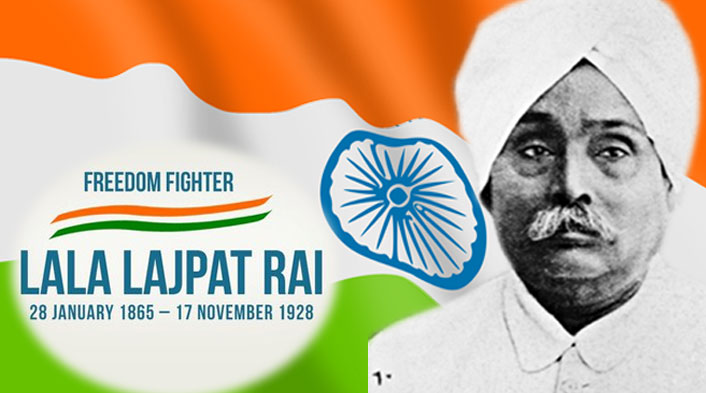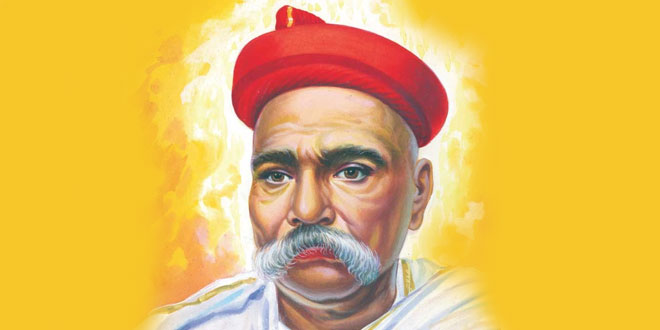
Punjab Kesri Lala Lajpat Rai, Bal Gangadhar Tilak, and Bipin Chandra Pal were a triumvirate of hardcore nationalists in British-ruled India from 1905 to 1918. They advocated the self-rule or Swadeshi movement involving the boycott of all imported items and the use of Indian-made goods in 1907 during the anti-Partition agitation in Bengal.
Punjab Kesri Lala Lajpat Rai, Bal Gangadhar Tilak, and Bipin Chandra Pal were a triumvirate of hardcore nationalists in British-ruled India from 1905 to 1918. They advocated the self-rule or Swadeshi movement involving the boycott of all imported items and the use of Indian-made goods in 1907 during the anti-Partition agitation in Bengal.
The last and final years of the nineteenth century saw a radical sensibility emerge among some Indian intellectuals. This position burst onto the national all-India scene in 1905 with the Swadeshi movement – the term is usually rendered as “self reliance” or “self sufficiency”.
Lal-Bal-Pal mobilized Indians across the country against the Bengal partition, and the demonstrations, strikes and boycotts of British goods that began in Bengal soon spread to other regions in a broader protest against the Raj.The militant nationalist movement gradually fainted with the arrest of its main leader Bal Gangadhar Tilak and retirement of Bipin Chandra Pal and Aurobindo Ghosh from active politics.
Lala Lajpat Rai


Born: January 28, 1865
Place of Birth: Dhudike, Punjab
Parents: Munshi Radha Krishna Azad (Father) and Gulab Devi (Mother)
Spouse: Radha DeviChildren: Amrit Rai, PyareLal, Parvati
Education: Government College, Lahore
Literature: The Story of My Deportation (1908), Arya Samaj (1915), The United States of America: A Hindu’s impressions (1916), Young India (1916), England’s Debt to India: India (1917)
Political Association: Indian National Congress, Arya Samaj
Death: November 17, 1928
Lala Lajpat Rai was a prominent nationalist leader who played an important role in India’s struggle for freedom. He was a prominent member of the famous ‘Lal Bal Pal’ firebrand trio during the independence movement.
His fierce brand of patriotism and potent vocalism against the British rule earned him the title of ‘Punjab Kesari’ or the Lion of the Punjab. He also initiated the foundation of Punjab National Bank.In 1897, he founded the Hindu Orphan Relief Movement to keep the Christian missions from securing custody of Hindu orphan children. The Punjab Kesari succumbed to injuries sustained in police lathi-charge while protesting the arrival of Simon Commission.
Bal Gangadhar Tilak


Born: July 23, 1856.
Religion: Hindu
Place of Birth: Ratnagiri, Maharashtra
Father: Gangadhar Tilak
Spouse Name: Tapibai (name changed later to) Satyabhamabai, (a women belonging to Bal family)
Education: Deccan College, Pune and LL.B degree from Government Law College of University of Mumbai.
Literature: The Arctic Home in the Vedas, The Orion, Shrimadh Bhagvad Gita Rahasya
Political Association: Indian National Congress
Died: 1 August 1920 (aged 64), Mumbai, British India
One of the stalwarts of India’s freedom movement, Bal Gangadhar Tilak also known as Lokmanya Tilak was born in Ratnagiri, Maharashtraon July 23, 1856. He is known for his famous quote ” Self Rule is our birthright, and We shall have it! ” He was reverently addressed as Lokmanya (or “Beloved of the people” or “Revered by the world”).
After completing his graduation, Tilak began teaching in a private school in Pune and went on to become a journalist. He was very vocal in his criticism of the Western education system and set up the Deccan Education Society to educate India’s youth.
Tilak founded the Marathi daily Kesari (Lion), in the pages of which he actively propagated the cause of freedom. He joined the Indian National Congress in in 1890. He was known for his hardcore Hindu views. In 1907, when the Congress Party split into the two factions.The British authorities charged Tilak with sedition and he was imprisoned from 1908 to 1914 in Mandalay, Burma. He re-joined the Indian National Congress in 1916 and helped to found the All India Home Rule League in 1916-18.
A journalist himself, Pal used his profession in spreading patriotic feelings and social awareness. He was the editor of the ‘Democrat’, the ‘Independent’ and many other journals and newspapers. He published a biography of Queen Victoria in Bangla. ‘Swaraj and the Present Situation’ and ‘The Soul of India’ are the two of his many books written by him.
Pal had a ‘never say die’ attitude and he lived by his Principle. He revolted against the evils and ill practices of Hinduism. He was a member of the Brahmo Samaj and believed in the equality of men and women. He encouraged widow marriages and female education. India lost one of it’s most ardent patriot when he passed away in 1932.
Bipin Chandra Pal


Born: 7 November, 1858
Religion: Hinduism
Place of birth: Habiganj District , Assam
Parents: Ramchandra Pal (father), Narayani Devi (mother)
Spouse: Pal married twice, first in 1881, and after the death of his first wife, in 1891.
Son: Niranjan Pal, founder of Bombay Talkies
Education: Received school education in Sylhet. He went to the Presidency College for graduation but left it midway
Literature: The Soul of India: A Constructive Study of Indian Thoughts & Ideals
Political Association: Indian National Congress
Died: 20-May-1932
Bipin Chandra Pal (1858-1932) was a noted politician, journalist, an eminent orator and one of the three famous patriots, known as the trilogy of Lal Bal Pal. Pal was born on November 7, 1858 in at Sylhet (now in Bangladesh). He started his career as school master and worked as a librarian in the Calcutta Public Library. Here, he came in contact with Keshav Chandra Senand and other patriots like Shivnath Shastri, B.K.Goswami and S.N.Banerjee. Their influence attracted him to join active politics. Soon he got inspired by the extremist patriotism of Tilak, Lala and Aurobindo. Though he was admitted in the Presidency college, he left before graduating. However he had remarkable Literacy competence and studied various books extensively.
As a member of Indian National Congress he founded the Brahmo Samaj. At the 1887 Madras session of the Congress, Pal made a strong plea for repealing the Arms Act. He was one of the main architects of the Swadeshi movement and voiced his displeasure over the partition of West Bengal.

Post Your Comments